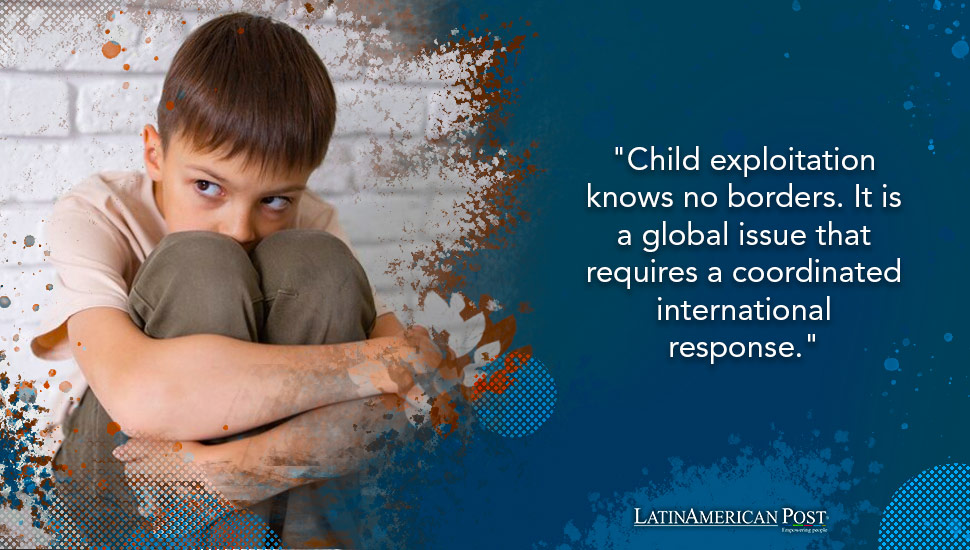Global Unity Needed to Combat Child Exploitation Crimes in Latin America

The recent arrest in Colombia, stemming from a USB drive found in Baltimore, underscores the indispensable role of international cooperation in addressing the horrific crime of child exploitation, highlighting the global nature of these offenses.
In an alarming case that emerged from Cúcuta, Colombia, a woman was arrested for using her two young children to produce sexually explicit videos. This case not only sheds light on the dark underbelly of child exploitation but also illustrates the crucial need for international cooperation to combat such heinous crimes effectively. The investigation, which led to this woman’s arrest, started with the discovery of a USB drive during a raid in Baltimore, USA, revealing the international links that such crimes can have.
Key to Combating Child Exploitation
Child exploitation knows no borders. It is a global issue that requires a coordinated international response. In the recent case in Colombia, the constant exchange of information and technical support between Colombian authorities and those in the United States was pivotal in tracing the origin of the criminal activities to Cúcuta. Without this collaboration, the individuals responsible for these reprehensible acts might never have been brought to justice.
The cooperation showcased here is a prime example of the effectiveness of combining resources and intelligence across countries to combat international crimes. It is an approach that should be modeled as it proves that sharing information and technology can lead to successful outcomes in tracking and prosecuting offenders in cases that have cross-border implications.
Latin America, in particular, faces significant challenges regarding child exploitation. The region’s socioeconomic conditions often make children vulnerable to exploitation, and the robustness of law enforcement varies significantly between countries. Furthermore, corruption and limited resources can impede timely and effective justice.
The situation is even more complicated in regions like Cúcuta, which is near the volatile border with Venezuela. The area is not only a hotspot for migration but also for various forms of trafficking, including human trafficking. This complexity makes the region a critical focus for international law enforcement agencies aiming to dismantle networks that exploit children.
To combat the scourge of child exploitation more effectively, countries in Latin America and beyond need to forge more robust legal and operational frameworks for cooperation. This involves sharing information and resources and aligning legal definitions and punishments across borders to prevent exploiters from taking advantage of legal loopholes.
Role of International Bodies and Agreements
Moreover, international bodies and agreements play a crucial role. Initiatives like INTERPOL’s efforts against child exploitation and the United Nations protocols aimed at protecting children need to be supported and strengthened. These platforms can facilitate swift and seamless cooperation that is often necessary to tackle crimes involving digital and cyber elements, which are notoriously difficult to trace and prosecute without coordinated efforts.
Beyond law enforcement, education, and public advocacy are vital in combating child exploitation. Raising awareness about the signs of exploitation and how to report them can empower communities to act as watchdogs. Educational campaigns can also help destigmatize the issue, encouraging more people to come forward with information that could lead to arrests and rescues.
Furthermore, in our digital age, educating children about their rights and how to protect themselves online is increasingly necessary. Programs that teach safe internet use can be instrumental in preventing exploitation before it starts.
Call for Collective Action
The case in Colombia is a stark reminder of the pervasive and pernicious nature of child exploitation. It underscores the urgent need for countries to collaborate more closely, sharing information, resources, and best practices. As we move forward, the international community must place a greater emphasis on cooperation and collective action. Only by working together can we hope to protect the most vulnerable members of society from exploitation and abuse.
Also read: The Urgent Imperative to Solve Women’s Underrepresentation in ICT Across Latin America
Tackling child exploitation requires a multifaceted approach. While robust international law enforcement cooperation is critical, it must be complemented by community education, legislative alignment, and strong advocacy. Only then can we hope to create a safer environment for children in Latin America and worldwide.




